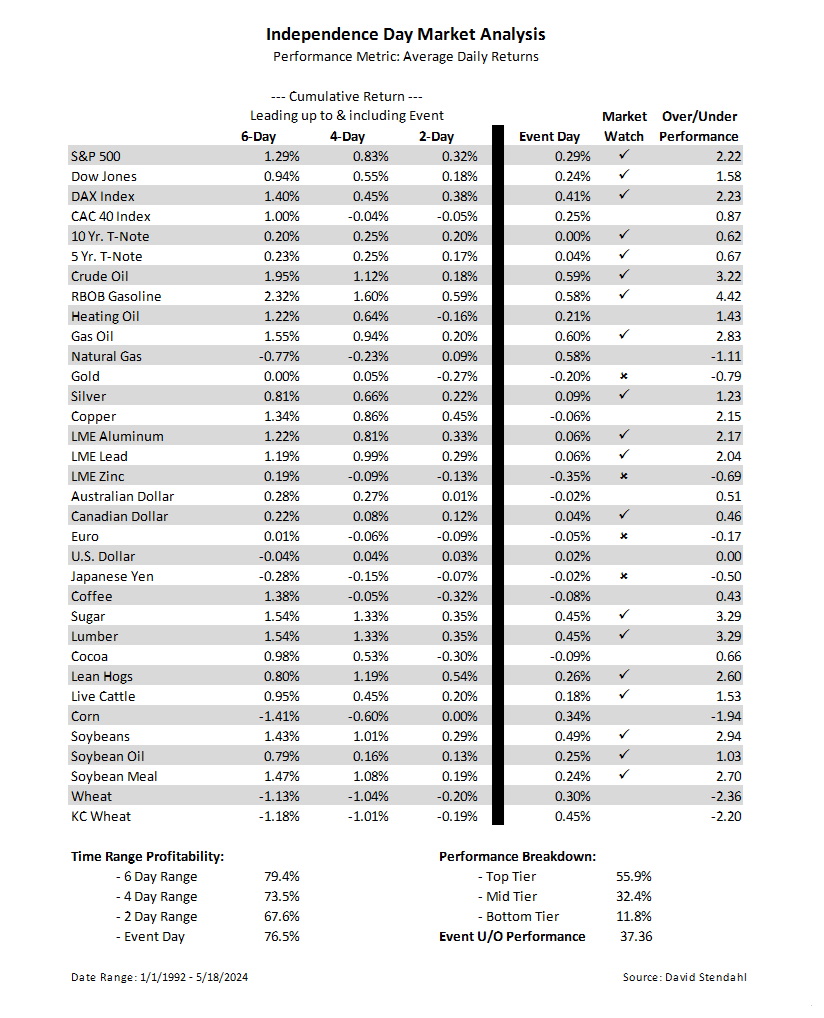Event: Independence Day
The Declaration of Independence was adopted on July 4th, 1776 marking the day the United States of America was born. We will celebrate America’s birthday with parades, fireworks, and a whole lot of food and adult beverages. Although the 4th of July has been celebrated each year since 1776, it didn’t become a federal holiday until 1870. Additionally, it didn’t become a paid holiday for federal employees until 1941.
The questions is … do the markets boom or bust heading into the July 4th holiday?
Market Comparision
How do the markets perform leading up to Independence Day? The analysis table below breaks down each of the 30+ markets into four separate trading periods. These time frames span 6-days, 4-day, 2-days and the event day itself. The return performance for each time frame is measured against its normal performance during the year to calculate a final over or underperformance return. This metric quantifies, in percentage points, the advantages or disadvantages associated with Independence Day. Markets highlighted with a checkmark or an “x” should be closely monitored for potential strengths or weaknesses heading into the event.

Calendar Breakdown by Events
All trading involves risk. Leveraged trading has large potential rewards, but also large potential risk. You must be aware of the risks and be willing to accept them in order to invest in the futures and options markets. Don’t trade with money you can’t afford to lose. This is neither a solicitation nor an offer to Buy/Sell futures or options. No representation is being made that any account will or is likely to achieve profits or losses similar to those discussed. The past performance of any trading system or methodology is not necessarily indicative of future results.
Our strategies have not been developed based on knowledge of or with reference to your particular circumstances, such as financial position, goals, risk-reward preferences, tax situation, brokerage arrangement, investment or trading experience, and so forth. Hence no content or model published here constitutes a recommendation that any particular security, portfolio of securities, transaction, or investment strategy is suitable for any specific person. You alone are solely responsible for determining whether any investment, security or strategy, or any other product or service, is appropriate or suitable for you based on your investment objectives and personal financial situation. More
